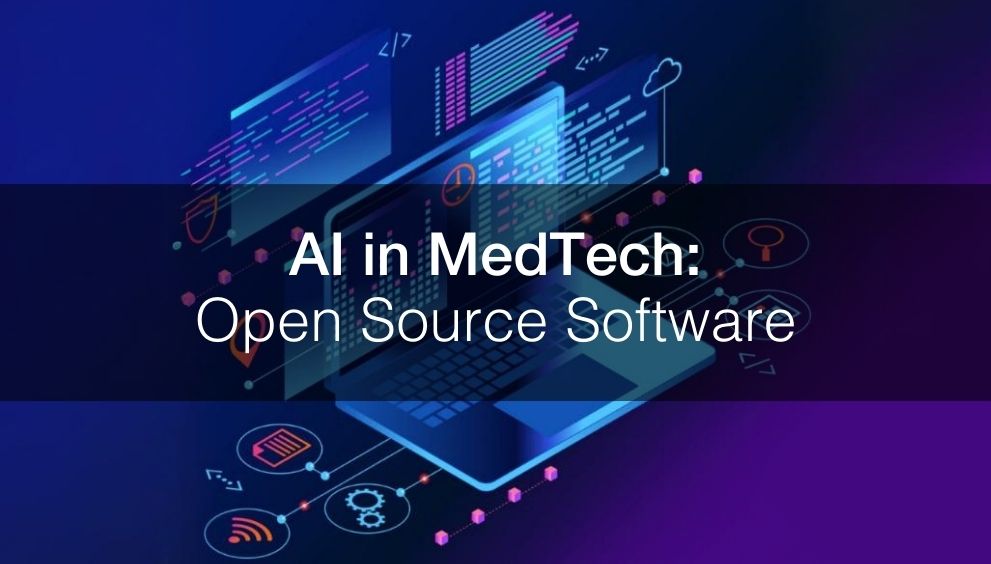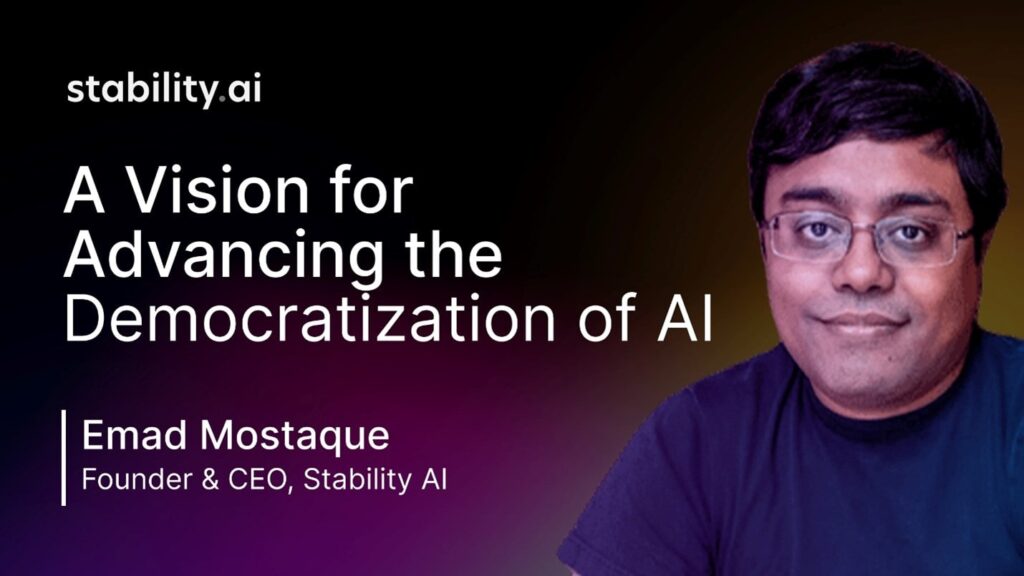Open-Source AI in MedTech: A Blessing or a Curse


Open-source software is a type of software where the source code is made available to the public. This enables anyone to access, modify, and distribute the software as they see fit, under the terms of the software’s license. The primary advantages of open-source software are its transparency, community-driven development, and the potential for increased security and innovation.
Unlike proprietary software, which keeps its source code hidden and controlled by the original developers, open-source software promotes a collaborative environment where developers can learn from, contribute to, and build upon each other’s work.
Open-Source AI’s Impact on Modern Healthcare
In the ever-evolving landscape of modern healthcare, the emergence of open-source artificial intelligence (AI), notably spurred by innovators like Emad Mostaque, the dynamic CEO of Stability AI, marks a significant stride forward.


Mostaque champions the use of open-source platforms to address specific challenges in modern healthcare, a sentiment resonated within the MedTech sector. He believes combining AI with medical technology will kickstart a period of fast progress. According to him, the key to this progress is adopting the open-source way of doing things.
Shaping the Future of MedTech
Distinguished by its transparency and collaborative spirit, open-source AI emerges as a potential game-changer for the MedTech core.
For example, as an open-source text-to-image AI model, Stability AI’s Stable Diffusion presents many possibilities for MedTech. It can transform textual descriptions of medical conditions into visual representations, serving as a potent tool in education, diagnosis, and patient communication. Moreover, this technology can aid in creating visual aids, and even 3D models, to enhance surgical planning and patient engagement.
Furthermore, the democratic essence of open-source AI creates new opportunities for smaller MedTech firms and healthcare establishments. Historically overshadowed by industry giants, these players now stand empowered to leverage open platforms like Stability AI’s StableStudio, an open-source iteration of its commercial AI-powered design software DreamStudio, to craft innovative solutions without burdensome licensing fees.
This paradigm creates many opportunities for medical innovations, addressing a broader spectrum of patient needs. However, the journey is full of hurdles. The stringent regulatory landscape and the mission-critical nature of MedTech applications call for prudent navigation. Though very promising, open-source models may spawn variability in the quality and performance of medical devices.
The delicate balance of patient safety and device efficacy standards may be challenging if not meticulously overseen. Intellectual property rights, the bedrock of MedTech innovation, are poised on uncertain grounds in a world increasingly influenced by open-source software.
In addition, the threat to data security, especially concerning patient-centric data, casts a shadow, where lapses could unleash severe repercussions.
The Road Ahead: The Future Landscape of MedTech
As MedTech companies increasingly adopt AI-driven tools, the need for comprehensive training for medical professionals grows. It involves ensuring that all key stakeholders understand both the benefits and pitfalls of the technology, including its potential areas of misuse.
Nonetheless, inadvertent biases in AI algorithms, arising from open collaboration, require vigilant oversight. Rigorous verification and audit processes are indispensable to identify and rectify any biases that might skew diagnoses or recommendations.
Initiatives like leveraging blockchain technology for sharing open medical datasets, while shielding patient privacy, could bolster collaboration while upholding high ethical standards.
Heading into 2024, open-source AI undeniably offers a plethora of opportunities to reshape MedTech. MedTech stakeholders are on the cusp of a delicate balancing act—imbibing the collaborative essence of open-source while ensuring the sanctity of patient safety, data integrity, and the quality of innovation remains unscathed.
In conclusion, the journey of open-source AI in MedTech offers both immense promise and significant challenges. It epitomizes 21st-century innovation where collaboration and openness are equally as vital as vigilance and ethical governance.
At The MedTech Digest, we see a future where the prudent adoption of open-source AI fuels the MedTech sector’s quest for groundbreaking solutions, steering it towards a horizon of enhanced healthcare delivery medical discoveries, benefiting MedTech stakeholders of all sizes and most importantly patients.
Follow us on LinkedIn to be the first to know when the next part of our AI series goes live!













